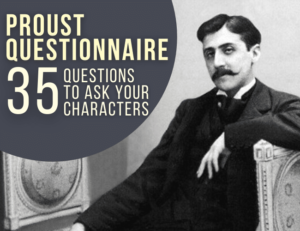Small talk is challenging for most of us – and yet, we are faced with times at work and in social situations that require us to participate. Personally, I’d much prefer to jump into a deep discussion about events of the day rather than fumbling around and talking about the weather.
We all want to be seen and heard and that’s why ice-breakers and conversation starters (often called “parlor games” back in the day) can come in so handy. As a speaker and facilitator, I use ice-breakers all the time to get people loosened up, create a sense of familiarity and most importantly, have a laugh together. Otherwise, you are bound to walk away from a meeting or gathering not knowing the people in the room any more than when you began. Asking thought-provoking and fun questions is an easy way to get the party started.
The next time, you have a team meeting – and want to learn something new about your team members – or you have a gathering at your home and want to liven up the atmosphere – try these:
I love Steve Colbert’s Questionert which he boasts includes the 15 questions that reveal who a person really is.

- Best sandwich?
- What’s the one thing you own that you should throw out?
- What is the scariest animal?
- Apples or Oranges?
- Have you ever asked someone for an autograph?
- What do you think happens when we die?
- Favorite action movie?
- Favorite smell?
- Least favorite smell?
- Exercise – worth it?
- Flat or sparkling?
- Most used app on your phone?
- You get to listen to one song for the rest of your life – what is it?
- What number am I thinking of?
- Describe the rest of your life in 5 words.
Or the infamous questions James Lipton would ask his actor guests at the end of Actor’s Studio:

- What is your favorite word?
- What is your least favorite word?
- What turns you on?
- What turns you off?
- What sound or noise do you love?
- What sound or noise do you hate?
- What is your favorite curse word?
- What profession other than your own would you like to attempt?
Finally, the Proust Questionnaire that has its origins in a parlor game popularized by Marcel Proust, the French essayist and novelist. He believed that, in answering these questions, an individual reveals his or her true nature. Here they are:

- What is your idea of perfect happiness?
- What is your greatest fear?
- What is the trait you most deplore in yourself?
- What is the trait you most deplore in others?
- Which living person do you most admire?
- What is your greatest extravagance?
- What is your current state of mind?
- What do you consider the most overrated virtue?
- On what occasion do you lie?
- What do you most dislike about your appearance?
- Which living person do you most despise?
- What is the quality you most like in a man?
- What is the quality you most like in a woman?
- Which words or phrases do you most overuse?
- What or who is the greatest love of your life?
- When and where were you happiest?
- Which talent would you most like to have?
- If you could change one thing about yourself, what would it be?
- What do you consider your greatest achievement?
- If you were to die and come back as a person or a thing, what would it be?
- Where would you most like to live?
- What is your most treasured possession?
- What do you regard as the lowest depth of misery?
- What is your favorite occupation?
- What is your most marked characteristic?
- What do you most value in your friends?
- Who are your favorite writers?
- Who is your hero of fiction?
- Which historical figure do you most identify with?
- Who are your heroes in real life?
- What are your favorite names?
- What is it that you most dislike?
- What is your greatest regret?
- How would you like to die?
- What is your motto?
Choose a few, choose them all, try them out and see if personalities are revealed and relationships blossom – perhaps because of commonalities or curiosity to know more. For those who are more introverted, leveraging these kinds of questions provide conversational guard rails – allowing each person a moment in the spotlight without burdening them with carrying the weight of the entire conversation – we’ll leave that to our more extraverted colleagues and friends.






